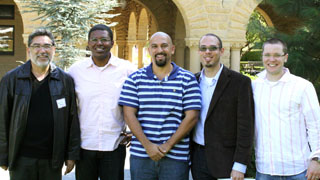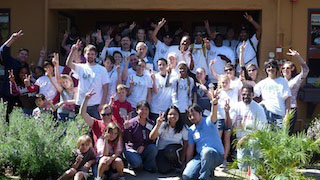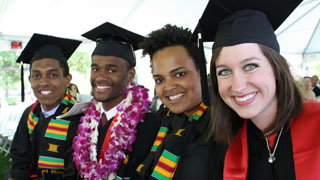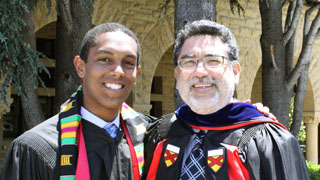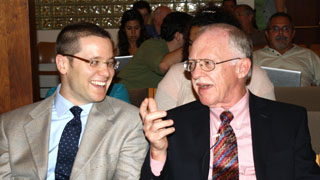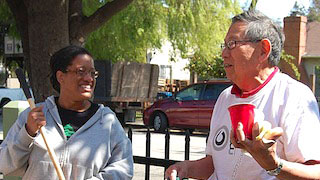Events
-
10/08/2015 - 4:15pmShaul Magid
-
10/28/2015 - 7:00pmLacey Schwartz with Allyson Hobbs
-
11/03/2015 - 4:00pmLeah Gordon
-
01/13/2016 - 4:00pmAliya Saperstein
-
03/10/2016 - 4:00pmPaula Moya
Events Archive
Announcements
Neighborhoods influence use of African American Vernacular English, Stanford research shows

What neighborhood children grow up in can influence their use of African American Vernacular English and eventual prospects for educational success and socio-economic mobility, a new Stanford study shows.
In the first experiment of its kind on the subject, Stanford linguistics Professor John Rickford and his colleagues (several of them economists) sought to better understand what shapes the relative use of African American Vernacular English vs. Standard American English in inner city neighborhoods. In particular, they explored whether moving into a more economically advantaged neighborhood causes a decline in the rate at which speakers use the African American vernacular.
African American Vernacular English, or AAVE, is a dialect of American English most commonly spoken today by urban working-class African Americans.
Rickford said it resembles other vernacular or nonstandard varieties – like Cockney or Appalachian English – in the sense that while it's important for self-expression, and for marking group identity and solidarity, it can also trigger discrimination in the workplace, housing market, schools and courts.
"Language is in many respects a socially constructed behavior, jointly influenced by exposure, identity and peer group influence. One's speech patterns are shaped not only by one's family, but also by one's broader regional and social environment," wrote Rickford, a leading expert on socio-linguistics and the J.E. Wallace Sterling Professor in the Humanities at Stanford.







